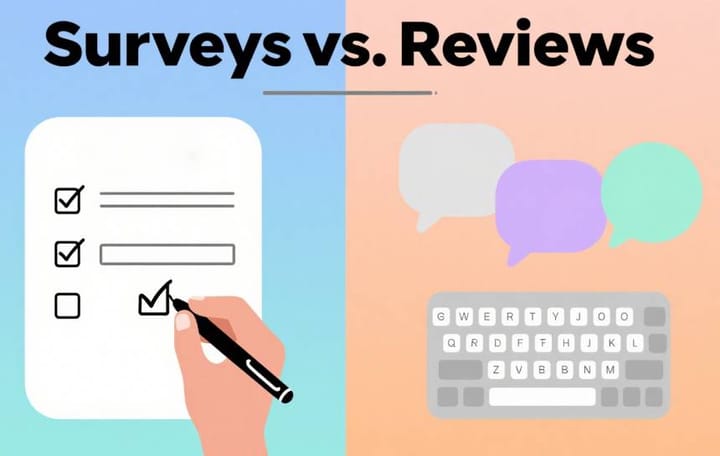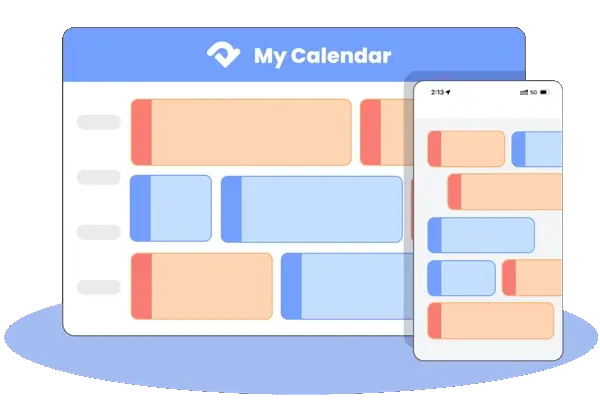In the world of hospitality, whether you're running a cozy bed and breakfast, a bustling hotel, or a unique vacation rental, guest satisfaction is the name of the game. It's the key to repeat business, positive word - of - mouth, and a thriving bottom line. Two powerful tools at your disposal for gauging and enhancing guest satisfaction are guest surveys and guest reviews. But what's the difference between them, and how can you use both to your advantage? Let's dive in.
Defining Guest Surveys and Guest Reviews
Understanding Guest Surveys
A guest survey is a set of questions sent to guests during or after their stay. Surveys can be tailored to ask about specific areas such as check-in efficiency, housekeeping quality, restaurant service, or amenities. They are usually private, meaning the results go directly to your management team rather than appearing on public platforms.
Surveys can be delivered through email, mobile apps, or even printed cards. They give owners and managers control over the topics covered. You can ask targeted questions that provide actionable insights, for example:
- “How satisfied were you with the speed of check-in?”
- “Was your room cleaned to your expectations?”
- “Would you recommend our hotel to friends or family?”
The strengths of guest surveys:
- Targeted & Controlled: You choose who gets them, when, and what specific aspects to probe.
- Deep Diagnostic Power: Structured questions (like "How likely are you to recommend us?" - or specific 1-5 ratings) combined with open-ended feedback uncover the reasons behind satisfaction or frustration. Why was communication rated poorly? Which specific amenity needs upgrading?
- Actionable & Trackable: Quantifiable data (e.g., "Communication speed averages 3.2/5") pinpoints precise weaknesses. You can track progress over time after implementing changes, directly linking actions to improved scores.
- Preventative Insight: Catch simmering issues (e.g., consistent complaints about slow maintenance response) before they explode into damaging public reviews.
Understanding Guest Reviews
A guest review is a public statement left on platforms like Google, TripAdvisor, Booking.com, or Airbnb. Reviews are visible to anyone considering a stay at your property. They act as both a record of a guest’s experience and a marketing tool. Good reviews can attract new guests, while poor reviews can harm your reputation.
While reviews may lack the detail of a survey, they carry powerful social proof. Prospective guests often trust peer opinions more than advertising, making reviews a critical part of building credibility.
Key characteristics of guest reviews:
- Voluntary & Biased: Typically, only extremely satisfied or deeply dissatisfied guests leave them, missing the "silent majority."
- Emotional & General: Feedback often focuses on overall feelings ("loved it!" or "terrible!") rather than specific details.
- Reactive Management: Your main actions involve professionally responding to praise and publicly addressing complaints to protect your reputation.
- Limited Insight: While highlighting glaring issues (dirty bathroom, broken AC) or standout positives (amazing view, friendly host), they rarely explain why something was good or bad. You see the symptom, not the root cause.
Key Differences Between Surveys and Reviews
Surveys and reviews are both feedback channels, but they serve different purposes and operate in different environments.
| Aspect | Guest Survey | Guest Review |
|---|---|---|
| Visibility | Private, internal use | Public, visible to all |
| Control | Business controls the questions | Guest decides what to share |
| Detail | Focused, specific insights | Broad, often general |
| Timing | Can be sent in-stay or post-stay | Usually post-stay |
| Impact | Drives operational improvements | Shapes public reputation |
A survey might reveal that 20% of guests found breakfast options limited. This allows you to make changes quickly. A review saying “The breakfast buffet was disappointing” tells the public about the issue but offers less detail on how to fix it.
Why Both Are Essential for Guest Satisfaction
Relying on just one? You’re missing half the picture. Think of surveys and reviews as your two essential tools for understanding guests – they do different jobs, and you need both.
- Surveys give you the inside scoop. They’re your direct line to specific, actionable feedback. You can ask exactly what you need to know: “Was the check-in smooth?” “How was the room cleanliness?” “Did the breakfast meet expectations?” This structured info is gold for fixing things behind the scenes – tweaking staff training, prioritizing maintenance, or adjusting a service. It helps you catch problems before they blow up online.
- Reviews tell you what the world sees. They’re the unfiltered, public conversation about your place. Reading them shows you what potential guests actually care about when they’re choosing a stay. What do they rave about? What makes them hesitate? This is your reputation pulse check.
Best Practices for Guest Surveys
To get useful data from surveys, timing and design matter.
- Send at the right moment. In-stay surveys can solve issues before check-out. Post-stay surveys capture the complete experience.
- Keep them concise. Guests are more likely to complete short surveys with clear questions.
- Ask a mix of rating and open-ended questions. Ratings provide measurable trends, while open comments reveal unexpected details.
- Follow up. If a guest reports dissatisfaction, respond directly to show you value their feedback.
By treating surveys as a conversation rather than a checklist, you encourage honest and detailed responses.
Best Practices for Guest Reviews
Reviews require a proactive approach to protect and enhance your reputation.
- Encourage reviews. A polite request at check-out or in a follow-up email can increase review volume.
- Respond to all reviews. Thank guests for positive comments and address concerns raised in negative reviews.
- Stay professional. Even if feedback feels unfair, a calm and respectful reply demonstrates your commitment to guest satisfaction.
- Highlight improvements. If you fixed an issue mentioned in a past review, let the public know.
Consistent engagement with reviews shows transparency and builds trust among potential customers.
Making Surveys and Reviews Work Together
Hotel owners benefit most when surveys and reviews are managed together. Look for patterns: if multiple surveys and reviews mention slow Wi-Fi, it signals a priority for improvement. If both praise your staff’s friendliness, make it a core part of your marketing.
You can also use surveys to generate more reviews. At the end of a positive survey response, include a link inviting the guest to share their experience publicly. This not only boosts your review count but ensures the reviews reflect genuine satisfaction.
Measuring Success
To ensure your strategy works, monitor a few key performance indicators:
- Survey response rate – shows how engaged your guests are with your feedback process.
- Average survey scores – tracks operational performance over time.
- Review ratings – reflects public perception and brand strength.
- Repeat booking rate – a sign of loyalty influenced by improved satisfaction.
Regularly reviewing these metrics keeps your property on track toward higher guest satisfaction and stronger market positioning.
Final Thoughts
Surveys and reviews aren’t competing—they’re two sides of the same coin. Surveys give you the nitty-gritty details you need to fix things behind the scenes. Reviews are where your happy customers shout your praises to the world, telling future guests, “This place gets it right.”
When you use both together, magic happens. You spot problems fast, solve them quietly, then watch your reviews start glowing as guests notice the upgrades.

